The upcoming documentary “God And Country,” produced by Rob Reiner, alleges that politically active conservative Christians (all lumped together under the label “Christian Nationalism”) don’t understand True Christianity and have let politics subsume their faith. However, if you take a look at who is delivering this message, it becomes clear this is a case of DARVO (an acronym for “deny, attack, and reverse victim and offender”).
To a person, the film’s talking heads all display eye-socket logs of theological compromise in service of politics. In this series of articles, you will see the “experts” of “God And Country” are either firmly outside Christianity in theology and practice or deeply compromised on basic Christian ethics.
Today, we examine Anthea Butler, a Professor at UPenn and the chair of its Religious Studies department. In the G+C trailer, Butler does not speak on the nature of the Christian faith, unlike New Age nun Simone Campbell. Her highlighted quotes focus on political outcomes.
“What happens to the people who don’t believe this stuff?” Butler asks, before a cut to b-roll of a white man in a bulletproof vest angrily pushing another protester.
“The thing that keeps me up at night is that we lose democracy,” she says later. “Does that seem possible?” a female interviewer (possibly Katherine Stewart, author of The Power Worshipers, the book that reportedly inspired the film) replies. Almost immediately, Butler responds grimly, “Yes.”
Anthea Butler, 100% Antichrist
What’s nice about Butler is that she does not hide her heterodoxy with any subtlety or craftiness. If you find her speaking in a friendly setting, she will readily spout numerous complaints (in fact, just plain disgust) with all aspects of conservative theology. Just from a handful of interviews, we can see that Butler [emphases added]:
-Does not consider the Bible a “supernatural thing”:
It’s hard to even talk to people about how the Bible is constructed, because they think it is a supernatural kind of thing. And I’m like, this comes about through many centuries and the ways in which people pick certain books to be in the canon of the Bible and others that are not.
-Denies the exclusivity of Christ:
Some people think about the Bible as the exact Word Of God, inerrant and infallible. It is right for every rule of life. But most of the world doesn’t live like that. Most of the world is not even Christian. They’re, you know, Hindu or they’re Buddhist or they’re something else… [Q: They’re all going to Hell?] That’s what people think, because it says it in the Bible. But where does it say that? Where does it tell this? They’re going to all call me up and go, well, Jesus said, I’m the way, the truth, and the life, and no man comes to the Father but through me, right? And I’m like, but when did Jesus live? These are the questions that hurt people, because I’m asking them to think broader and deeper.
-Is generally antinomian:
[I] think about the ways in which religion affects people historically and in the present day. And especially with Christianity, what you find is that you have Christians over and over again who say, “I want to live this way. I want to not have sex before I get married. I don’t want to be gay. I don’t want to be this, I don’t want to be that.” And then they end up messing up, it causes a lot of grief and pain to their lives. A lot of churches end up kicking them out. And what I’m asking you to ask yourself is, where does this come from? Why are these rules here? How are these rules used to say this is okay for some people but it’s not okay for others, right? And so that’s what I’m trying to get you to see in the context of America right now, where we have evangelicals who tell us: “Trans kids are horrible. We don’t want them exercising. We don’t want them doing this kind of stuff.”
The black church has a problem with homophobia. The black church needs to get over it, because they know they would never be able to fill the choir. They would never have any programs in their church or anything. But even more than that, it’s not just about that. It’s about the acceptance of people, when we have been through so much, that you want to use sexuality as a way to define whether God loves somebody or not. That’s not your call. It’s not your call. And so I completely disagree with all of this. I am open and affirming and accepting of everybody… What has happened is that we have inculcated these white evangelical ideas about sexuality and purity and everything else that makes us bound up, that keeps us in chains and keeps us from realizing the fullness of potential of ourselves and each other, when we begin to think about all the things that God could do for us.
-Says Christians can learn from paganism how to improve our beliefs:
[“Indigenous faith”] is about family and about your ancestors and about the ways in which you look at the earth and all of the things that are in it, and how that relates to who you are as a human being. It’s a holistic kind of faith. What some parts of Christianity ask you to do is to dissect yourself from that. And so what people need to understand…is that western Christianity is based in western modes of thought. Those are not African modes of thought. And so when we’re talking about how this sort of western dichotomy about spirit and soul, soma and sarc…disconnect us from the way we are supposed to be connected in nature, to each other, to the cosmos, all of these things. And so I think what African traditional religions do for people is to give them a more holistic way of looking at the world.
While Butler is a nominal Catholic, we can see she clearly despises the basic theses of the religion she claims to belong to.
Shoddy Historian
You may object, “Butler may have liberal theology, but she’s not in the film to discuss theology! She’s there to discuss the political ramifications of Christian nationalism.” And that is a valid point, but even in the world of secular politics, Butler has a record too weak to claim any status as an expert.
Neil Shenvi has done important work reading through Butler’s book, White Evangelical Racism, which is often cited in polemics against “Christian Nationalism.” Shockingly, he found “Butler’s book contains no footnotes, endnotes, or in-text citations of any kind.” And even worse, she makes several plainly incorrect or unsubstantiated claims, raising questions on the rigorousness of publisher University Of North Carolina Press’s fact-checking process [emphases original]:
Throughout the book, I came across assertions that immediately raised red flags. The most obvious example is Butler’s discussion of Sarah Palin’s vice-presidential candidacy in 2008. Butler writes “Reporters for Al Jazeera… were dumbfounded by Palin’s responses to questions about Obama, such as ‘I’m afraid if he wins, the Blacks will take over…’ or ‘When you got a Negro running for president, you need a first-stringer. He’s definitely a second-stringer.‘” (p. 118) These comments are undeniably appalling, but they were not made by Palin. Butler appears to have taken them from an online transcript, which clearly states that the comments were made by “McCain/Palin supporters at an Ohio rally.” Indeed, the actual Al Jazeera interview can still be found online and it shows that these statements were made by people attending the rally, not by Palin herself, contrary to Butler’s claim.
Another example is Butler’s statement that “Evangelicals began to use the language of ‘religious freedom’ as a way to exclude LGBTQ persons from civil rights and to lobby for special status in cases such as the Masterpiece Cakeshop case… The religious freedom argument is an old one, originating in the nineteenth century, when evangelicals used religious beliefs about race to separate their denominations and justify slavery” (p. 131). It makes little sense to argue that the “religious freedom argument” arose in the “nineteenth century” given that the Maryland Toleration Act of 1649 stated that “no person or persons…professing to believe in Jesus Christ, shall from henceforth be anyways troubled, Molested or discountenanced for or in respect of his or her religion nor in the free exercise thereof within this Province.” Similar language was, of course, repeated in the First Amendment: “Congress shall make no law respecting an establishment of religion, or prohibiting the free exercise thereof.” These documents obviously preceded 19th-century denominational splits over slavery.
In other places, Butler makes specific claims without substantiating them. For instance, on page 76, Butler writes that “the underlying message of these groups [such as the American Family Association, Focus on the Family, and the Family Research Council] was that morality was essential to preserving the nation and that the sexual immorality of America, including race mixing, would be its downfall.” Needless to say, the allegation that these well-known evangelical groups regarded “race mixing” as a form of “sexual immorality” is quite serious and evidence is required. Unfortunately, none is provided.
More recently, we see examples of Butler filtering all data through her presupposed narratives, leading to bizarre and silly conclusions. In an unhinged op-ed reacting to the acquittal of Kyle Rittenhouse, Butler asserts the case “can’t be separated from race and racism.”
“His killing of Joseph Rosenbaum and Anthony Huber at a racial justice march in Kenosha and then his being found not guilty send a clear message: White lives who protest for Black lives matter don’t matter,” she writes. Toward the end of the piece, she engages in some classic Kafkatrapping, that Rittenhouse’s avowed support of Black Lives Matter and declaration that he is not a racist is merely “a PR stunt to counter the accusations that he is a racist.”
In a 2022 lecture for Harvard Divinity School, she notes that people of many ethnicities were present at the infamous protests and riot of January 6. Her explanation for their participation: “they saw themselves being able to transcend their racial boundaries… and to have the same kind of power that white Christians have in this country.”
The fact that minority protesters on January 6 may have sincerely supported Trump or sincerely thought the 2020 election was stolen never even crosses her mind. The only metaphysical framework that has any explanatory power for Butler is racial hierarchies.
One month later in a talk for Michigan State University, the professor named Michael Brown as an example of “innocent people” killed by police, saying his death was “over Swisher Sweets.” Brown’s initial contact with Ferguson police officer Darren Wilson was over an alleged cigarillo theft, but the reason for his fatal shooting was that Brown assaulted Wilson, grabbed his gun, and then charged at him when the officer gave chase. Wilson’s account of the altercation was backed up by several eyewitnesses and forensic evidence, including three autopsies, and ultimately confirmed by a federal investigation.
Fashionable Bigotry
I have often shared my suspicion that the “Beware Christian Nationalism” project is a recruitment strategy for the dying mainline, at best, or a strategy to justify state persecution of conservative Christianity at worst. For Butler, though, the motivation seems less strategic and more personal. She just doesn’t like us very much.
In a 2021 conversation with Georgetown University’s Terrence Johnson, Butler says she has “lost a lot of evangelical friends” with her unconstrained critiques, and it has been “a long time” since she has participated in any evangelical worship. She explains, rather bluntly, that a big part of this shift is her lack of love for “them people”:
I have become more admitted about not doing it, in part because I see it as not just a person who has faith but I also see it as a person who is an academic who thinks about history. Who thinks about it. I think where I differ from [James] Baldwin is that I don’t know that I think love is going to come fix this. I don’t think it’s about love anymore. I mean, Baldwin talked a lot about that, and that’s always where I have a problem with Baldwin. Because I’m just like, “You know I don’t love them people, right?” And you know I don’t have any love for this. This is not a good thing. [emphasis added]
Shortly before that admission, Butler expressed her horror that children brought into the U.S. illegally have been placed with evangelical Christians or adopted by them. “This is what I hope is not going to happen in the Biden administration,” she frets. “You just don’t put these kids in homes that they’re just going to end up being turned into little evangelical Christians.”
The evidence is clear: Butler simply does not want conservative evangelicals )those who believe the Bible provides absolute, universal truth and ethical standards) to influence society or for their beliefs to persist in future generations. This overwhelming animus shows her participation in “God And Country” does not come purely from a desire for inclusion and pluralism, and it is important for the public to know where her critiques are coming from.

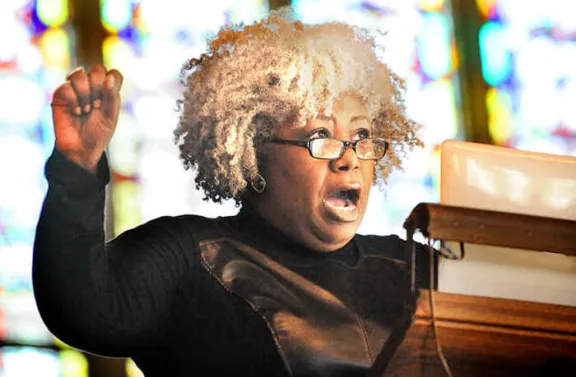


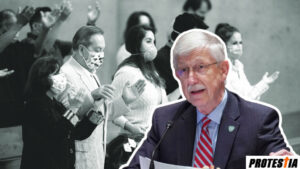
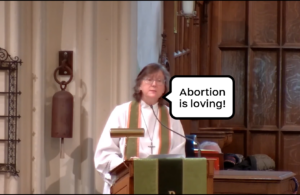

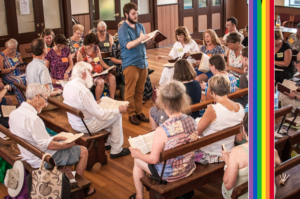



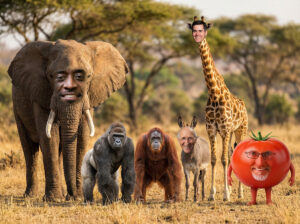


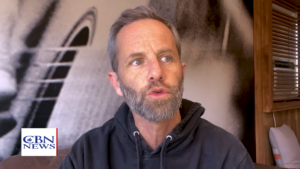
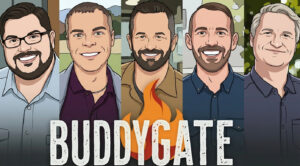


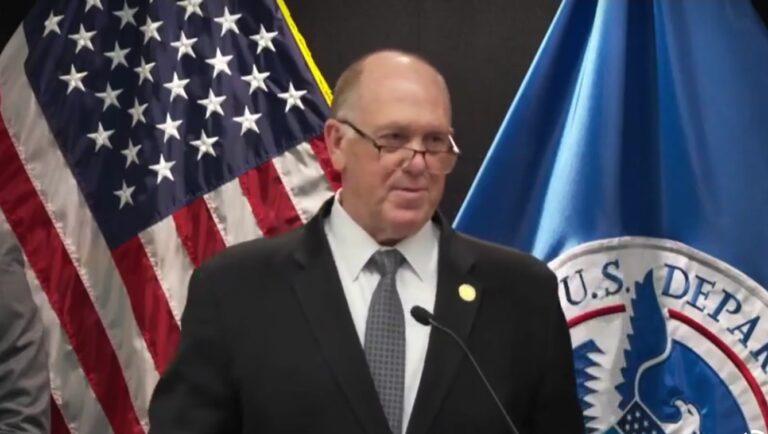
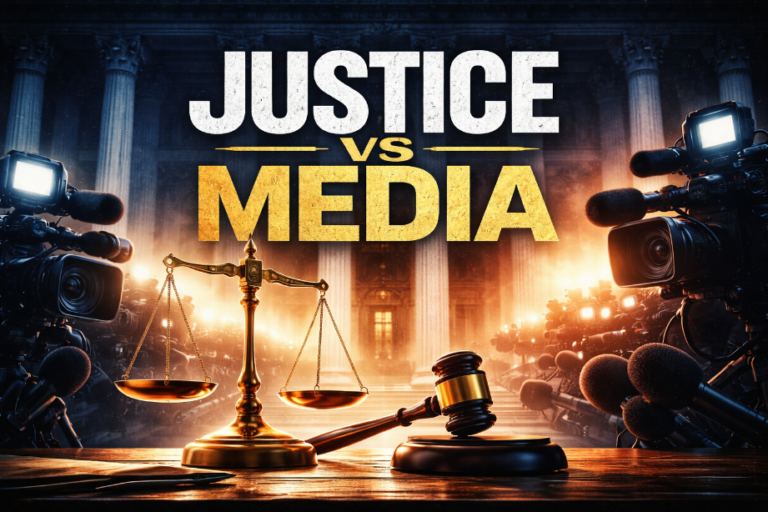

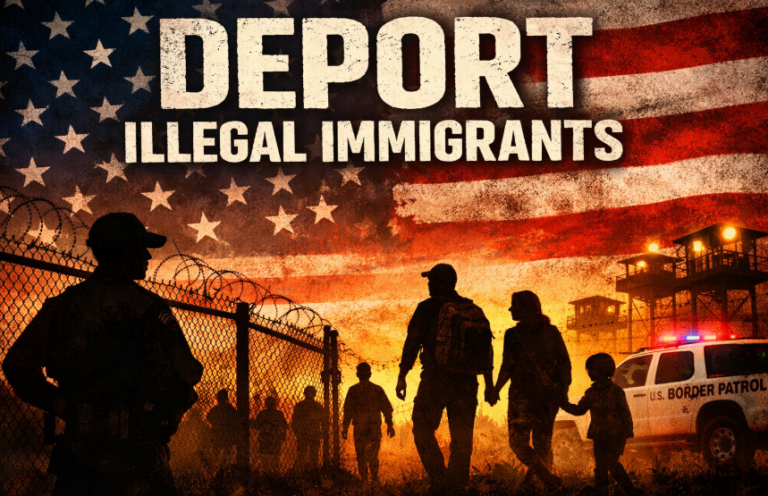

5 responses to “Meet “God + Country” Talking Head Anthea Butler: Christian In Name Only, Quite Literally”
The godless have been impotently attacking Christ’s church for millennia using any means they can come up with. Handpicking a collective of heretics and loons for inspection may make for great entertainment for the Hell-bound, but won’t dissuade the earnest seekers and saved.
Reiner remains a commie-wannabe woke fool.
It’s great to see these cultists unable to agree on what christianity is or who are the True Christians(tm). It’s even better when not a single one of you cultists can do what your jesus promises in your bible to his true believers.
You are all frauds per your very own bible.
This is just another part of The War From Hell.
Leftism is Satanic. It is a doctrine of demons. It is a combination of Marxism, Woke-ism, elitists, globalism, totalitarianism, and forced conformity of thought. And it is fully and diametrically opposed to everything biblical (e.g. Judeo-Christian Values). Yet many who claim Christ are joining forces with Leftism to demean, demonize, and destroy true, biblical Christianity, as well as all of humanity.
That is The War From Hell ….. yet very few Christians and pastors are doing anything about it.
[…] To a person, the film’s talking heads all display eye-socket logs of theological compromise in service of politics. In this series of articles, we showed how “experts” of “God And Country” are either firmly outside Christianity in theology and practice or deeply compromised on basic Christian ethics. Two examples of the former:Meet ‘God + Country’ Talking Head Simone Campbell: A Queer-Affirming Zen Mystic Who Denies Jesus’s MiraclesMeet “God + Country” Talking Head Anthea Butler: Christian In Name Only, Quite Literally […]
[…] Meet “God + Country” Talking Head Anthea Butler: Christian In Name Only, Quite LiterallyMeet ‘God + Country’ Talking Head Simone Campbell: A Queer-Affirming Zen Mystic Who Denies Jesus’s Miracles […]